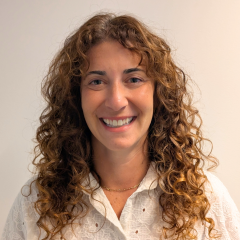Comprehensive inclusive business models to provide more sustainable access in LMICs
Date
19 November 2024
Bristol Myers Squibb, Novartis, Novo Nordisk, Pfizer, Sanofi
Global
Inclusive business models
Launching comprehensive inclusive business models covering broad geographic and product scopes
To sustainably improve access to a portfolio of products for people living in low- and middle-income (LMICs)
Commercial business models that are designed for higher- income markets are not well-suited for implementation in LMICs. Insufficient infrastructure, lack of equipment, or insufficient healthcare worker training can present challenges for pharmaceutical companies in these countries. As an alternative, companies have attempted to address access issues through philanthropic approaches, which can be appropriate for certain circumstances, but may not offer long-term solutions to access barriers, especially on their own.
In order to achieve reliable access to medicines in countries where their products are needed, companies can invest in establishing more sustainable approaches that are tailored to specific markets. By design, inclusive business models aim to be more financially sustainable for companies than philanthropic or donation-based approaches, while also providing more long-term and comprehensive solutions that can ensure the most vulnerable populations, especially those living in low-income and least developed countries, can receive the healthcare products they need.
Best Practice
Working closely with local implementing partners, five companies – Bristol Myers Squibb, Novartis, Novo Nordisk, Pfizer and Sanofi – demonstrate Best Practice with their inclusive business models. These models address a comprehensive range of access barriers and have long-term plans for generating a sustainable source of revenue.
Notably, these models are also wide-reaching – committing to offer multiple products in a wide range of countries, including many low-income countries (LICs) and least developed countries. Other companies may have inclusive business models with a more limited scope or engage in targeted initiatives such as patient assistance programmes, investments in social entrepreneurships or access-to-medicine strategies for specific products in their portfolios.
Bristol Myers Squibb’s 2024 Accessibility, Sustainability, Patient-centric, Impact, Responsibility and Equity (ASPIRE) model covers 85 LMICs, including 32 LICs and/or least developed countries, with nine mostly on-patent products addressing diseases in scope (beta thalassemia, cancer and viral infections). The company has launched tailored product access strategies (e.g., second brands), managed access programmes and health system strengthening efforts to improve access to its products. ASPIRE contributes to Bristol Myers Squibb's aim to reach over 200,000 people by 2033.
Novartis established its Sub-Saharan Africa Business Unit in 2019. The unit covers 44 countries in scope of the Index, including 30 LICs and/or least developed countries, and includes 12 products* in scope of the Index (for diabetes, cardiovascular diseases, cancer, malaria, neurology and sickle cell disease). Through the Unit, Novartis uses approaches, such as tiered pricing, second brands, investment in social business and health system strengthening to address access barriers.
Novo Nordisk’s iCARE, launched in 2021, is part of the company’s core business. It provides nine reduced-cost diabetes products in 46 countries in scope of the Index in middle Africa, including 33 LICs and/or least developed countries. Affordability is addressed through partnerships with governments, religious and supply organisations. The model also addresses health system capacity and patient empowerment through trainings, tele-counselling and community health events. Supply chain barriers are addressed through partnerships with e-pharmacies. iCARE aims to reach over two million people with diabetes by 2030.
Pfizer’s Accord for a Healthier World (the Accord) was launched in 2022, offering 45 countries (including 40 LICs and/or least developed countries) all the company’s current and future on- and off-patent products** that it has global rights to on a not-for-profit basis. Through Accord bilateral agreements, Pfizer collaborates with governments to assess health system needs in order to: supply its medicines and vaccines; co-create solutions that can help strengthen supply chain and logistics; develop healthcare workforce capabilities; and enable more efficient regulatory pathways, as permitted by local regulation. The Accord is also collaborating with governments, global health organisations and others to identify opportunities to improve the quality of healthcare across the entire patient journey in key therapeutic areas (e.g. breast cancer and antimicrobial resistance). Pfizer aims to provide healthcare to 1.2 billion people through the Accord, although the company does not specify a timeline for accomplishing this.
Sanofi’s Global Health Unit (GHU), launched in 2021, is a non-profit unit that reinvests its margins back into the model to fund its operations. It provides 40 LMICs (including 35 LICs and least developed countries) with 29 products in scope of the Index indicated for non-communicable diseases (NCDs), such as diabetes, cancer and cardiovascular disease as well as malaria and the neglected tropical disease and leishmaniasis. Through the GHU, Sanofi implements product access strategies (e.g., its second brand: Impact©), builds health system capacity and invests in local start-ups. Sanofi aims to provide care for 2 million people living with NCDs by 2030 through its GHU.
Conclusion
These companies demonstrate Best Practice by operating comprehensive inclusive business models with long-term plans for scalability. To foster partnerships and drive accountability and implementation, outcomes and progress must be reported transparently – something that is not done consistently at present. Companies without inclusive business models can identify areas where their unique product portfolios can address significant access gaps for underserved or unserved populations and tailor long-term inclusive business models to address unmet needs.





